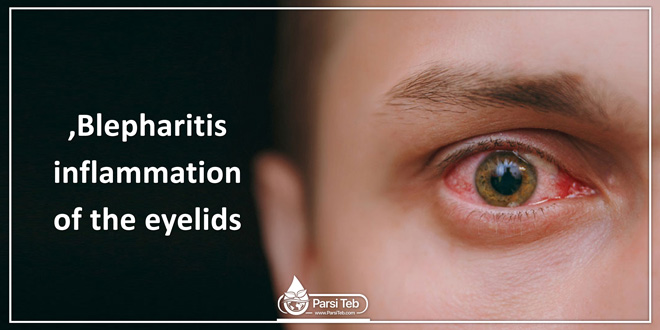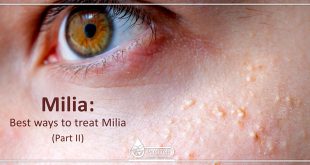Eye Health and Blepharitis
Blepharitis is an inflammation of the eyelids, usually caused by an excess growth of bacteria that is ordinarily found on the skin, and occasionally caused by allergies.
Blepharitis is a common eye condition, causing the eyelids to be reddened, itchy, and somewhat swollen and scaly-appearing at the base of the eyelashes. As scales become coarser, the surface of the eye becomes irritated and forms crusts, which may cause the lids to stick together when waking up in the morning. If this crust falls into your eye, you may feel like you have “something in your eye” or experience a gritty sensation.
Swollen, Red Eyelids and Other Symptoms of Conjunctivitis
What Are the Symptoms of Blepharitis?
The symptoms of blepharitis include:
* Feeling like something is in your eye.
* Burning of the eye.
* Sensitivity to light.
* Red and swollen eyes or eyelids.
* Blurry vision.
* Dry eyes.
* Crusting of the eyelashes.
How Is Blepharitis Treated?
Blepharitis cannot be cured, however, it can be treated and controlled through proper eyelid hygiene. Left untreated, blepharitis can develop into a more serious condition such as scarring or injury to the eye’s tissue. If you have blepharitis, take the steps listed below to help treat and cleanse your eye:
* Take a clean washcloth and wet it in very warm water. Wring the washcloth and place it over the closed eyelids for five minutes. Re-wet as necessary to maintain desired temperature. This will help to soften crusts and loosen oily debris.
* Place the warm, wet washcloth over the index finger and apply a diluted solution of 50% baby shampoo or mild soap.
* Cleanse one eye at a time, closing the eye you are cleansing, and rubbing the washcloth or your finger over the eyelashes and lid margins several times using horizontal strokes.
* Rinse thoroughly with a clean, warm, wet washcloth. Pat dry.
How Do I Prevent Blepharitis?
There are many everyday steps that you can take to prevent blepharitis. This includes:
* Keeping your hands and face clean.
* Avoiding rubbing your eyes with dirty fingers, a soiled handkerchief, etc.
* Removing all eye makeup before bedtime.
If you are in the early stages of treating blepharitis, avoid the use of eye makeup to prevent further irritation. Once you begin using makeup again, replace your products used in or near the eyelids because they may be contaminated.
 Parsi Teb Physical and Mental Health Journal
Parsi Teb Physical and Mental Health Journal 



